When it comes to adopting a new pet into your home, you’ll naturally have a few concerns – especially if you have young children. For this reason, it’s good to have a fair understanding of just what kind of dog you might end up with. High among the things you’ll likely want to know is what the chances are that they might become aggressive. That’s why we have compiled this detailed guide to the Goldendoodle temperament and answer the question: are Goldendoodles aggressive?
Your Typical Goldendoodle
Goldendoodles are among the most popular Doodles out there. This is not just because they are more well known than many of the other types, but because they pair the Poodle smarts and hypoallergenic hair with the sweet-natured Golden Retriever. The second breed especially has become synonymous with family dog.
While obviously not as established as some of the pedigree breeds that have been around for hundreds of years, Goldendoodles have become pretty familiar canines across the last thirty years or so. Therefore we know that they tend to be generally very loving and affectionate dogs that form close bonds with their people. On the flip side, they have an impressive zest for life that, coupled with their gorgeous good looks, makes them irresistible pets.
However, with any kind of mixed or ‘hybrid’ hound, it’s always a good idea to take a closer look at the two (or more) breeds that went into their creation to see if there might be any surprises there.
Poodles
Originally working dogs, Poodles lines were bred for the kind of enhanced intelligence and athleticism prized in hunter helpers. While they later caught the eye of aristocrats across Europe and were made increasingly smaller in a quest to create the perfect companion animal, they managed to retain their unique working qualities, as well as gain some that made them prized pets. These include a loyal, loving nature and a desire to please their owners, which means they can learn all manner of tricks.
Golden Retrievers
Also initially working dogs, Golden Retrievers were created to be the perfect mix of helpful hunter hound and loyal, even-tempered companion. These dogs have retained their larger size, but their working skills have expanded to encompass all different things. Alongside being used for hunting, Golden Retrievers are currently employed as service dogs, guide dogs, and rescue dogs. Moreover, their highly personable nature means that they make excellent therapy animals too. They are also highly prized as intelligent and playful pets.
Are Goldendoodles Aggressive?
Some dogs are more prone to aggression simply because of how and why they were bred. For instance, many were specifically used for fighting or overpowering other animals. In this case, the strongest, toughest ones would have been selected for breeding, strengthening these characteristics in every generation. Other dogs may have been intended for protecting and guarding. Again, qualities most associated with aggression – barking and biting – would have been desirable for these.
Today responsible breeders have been working hard to remove this kind of in-built aggression from these dogs, as well as the behaviors that go alongside it. However, sadly not all facilities have the animal’s or even the breed’s best interests at heart, focusing instead purely on profit. That’s why you need to make sure when you purchase a puppy that you have a good understanding of where they come from, not just the parents but the lines and the breeder’s specific motivations too.
Neither the Poodle nor the Golden Retriever was bred for any of this type of work that promotes aggression. In fact, quite the opposite. Breeders would have selected the calmest, most even-tempered parents pups to make these lovely dogs ever better in their respective roles – both in the past and today too. This makes it extremely unlikely that your Goldendoodle pup will develop any aggression issues. Any signs of this in these dogs would likely be the result of environment (including irresponsible breeding) or poor training or socialization.
Goldendoodle Behavioral Issues And What Might Lie Behind Them
While the Goldendoodle temperament doesn’t make them inclined towards aggression, there is always the potential for such behaviors in individual dogs under the right circumstances. You should always keep this in mind. If any dog is mistreated, neglected, abused, or put in a stressful situation, they can exhibit actions that might be considered aggressive. There are a few things you can do, though, to make this outcome less likely:
Purchase Your Pal From A Reputable Breeder
While responsible breeders take the greatest care to ensure their puppies are not only bred from healthy bloodlines, but have the very best start in life in terms of nutrition, early socialization, and basic training, this isn’t the case with all facilities. Dogs that come from so-called puppy mills, places that value profit over the health and wellbeing of their animals, could come with a multitude of health and behavioral problems, which includes a more aggressive nature.
Special care and attention should also be taken with dogs adopted at an older age, particularly if their background is unknown. You don’t know what conditions they might have been raised in or what situations they might have been exposed to. While they might come across as friendly, there could be various events that trigger aggressive behavior in them. The right kind of training and treatment can help overcome a troubled past; however, this often takes a bit of time.
Expose Your Pet To Novel Experiences From a Young Age
While most Goldendoodles adore people (which is why they make such poor guard dogs), early and extensive socialization is crucial for helping your pup to be confident in all situations. Goldies that have spent plenty of time with other people, including children, will naturally be the most comfortable in their company. Those raised in a more isolated environment will be more nervous and anxious overall, and this is when they could become aggressive.
This is true of people; it’s also true of other dogs and animals. While Goldendoodles have inherited the low prey drive of their parents, making them less likely to want to chase smaller creatures, a dog that doesn’t know how to behave around others could snap. Puppy play dates are a great way of getting your pup used to the company of other dogs to start with. Puppy kindergarten and group training sessions are another way to help your pal feel confident with being around plenty of other dogs.
Teach Your Children How to Properly Interact With Your Dog
Most Goldendoodles, like their Golden Retriever ancestors, are incredibly kid-friendly dogs. This makes them a much-in-demand family pet. However, you should never take it for granted that there will never be any problems at all. For a start, Goldies can be quite boisterous dogs, meaning they might knock smaller children down without the intention to do so. They can also be a lot to deal with for any younger children, and that’s why any kid-puppy play should be carefully supervised.
Beyond this, you need to make sure that your kids treat your pup with kindness and respect at all times. They should never bother them when they are sleeping or want some alone time. After all, nipping is how dogs express to other dogs that they’ve had enough of the games. It’s only natural that they would extend this behavior to children who mess around with them when they don’t want them to. While older dogs might be able to moderate the nip so it doesn’t hurt, younger dogs could have problems with this.
Keep Your Pooch Both Physically and Mentally Stimulated
All those Goldendoodle smarts, coupled with all that working dog energy, can make for a recipe for disaster if you don’t have the time to keep your canine entertained. Not to say that you need to spend every minute of the day with your dog (although these pups do better in a household where there is always someone around), but you do need to ensure they get plenty of daily exercise for one. Younger dogs may need as much as two hours of walks and games a day to keep their exuberance in check.
Likewise, if you are leaving your pet alone for long periods of the day, it’s a good idea that they have toys around them to keep them entertained. When you do have the time to give them a bit of attention, Goldendoodles greatly benefit from training. Just beware of harsh training methods – these dogs don’t respond well to shouting or smacking. Positive reinforcement training is where you train your pup using rewards to highlight desired behaviors. Most canine experts would recommend this as the best current method.
Goldendoodle Behavioral Stages
As is the case with their physical growth, a dog goes through different stages of mental development – especially in their first year. Where they are at with this will be a lot less apparent, yet it is essential that you are aware of these different stages, so you know both what to expect and how to handle it.
Toddler Stage (3-8 weeks)
Most of your puppy’s training at this stage will be done by their mama. As they start exploring the world around them, they will learn early lessons about being around and communicating with other dogs. This includes things like bite inhibition, vocalizations, and what various postures mean. This stage is particularly crucial and is one of the key reasons puppies shouldn’t be adopted before they are 8 weeks of age.
Socialization Stage and Fear Imprint Period (7-12 weeks)
Once they have their initial shots and are okay with being away from their littermates, this is the time to start socializing your pup to other people, dogs, and animals. This should be done slowly, and you need to ensure that all experiences at this stage are positive. The puppy is capable of experiencing true fear at this age, and any traumatic events at this time will stay with them for a very long time, if not forever.
Seniority Classification Stage (12-16 weeks)
At this stage, your puppy is likely very comfortable around you and your family and learning so much from your daily interactions. This is the stage where they will likely start to test boundaries to see what they can get away with. It can also be when aggressive behaviors are first observed. This is when you should be taking your puppy’s training up to the next level and ensuring that interactions are consistent and rules are clear.
Flight Instinct Stage (4-8 months)
Up until this point, your Goldie has likely been sticking pretty close. They value you as their stand-in parent and protector. However, once they reach this stage, they will start to become more independent. This is the time when they might decide to run off on you. How you deal with this behavior will set a precedent for how much freedom you can give your pet in later life. Reinforce the commands ‘come’ and ‘stay’ at every opportunity.
As it happens to be with puppies, these little Doods will go through some significant changes every month. Be sure to take a closer look at what to expect with your puppy when they’re 4 months, 5 months, 6 months, and 7 months of age.
Adolescence Stage (7-10 months)
As you can imagine, the adolescence stage is the trickiest time in your pup’s life. They will be full of energy and enthusiasm and will try to test you at every turn. This is the stage where you can start to understand whether early training techniques have been genuinely effective. However, don’t expect too much from your fur-baby. They may be at their mature size, but they are still very much a kid. Keep up with the training and get some expert help if you think it is needed.
Here’s all the info you’ll need when caring for your 8-month, 9-month, and 10-month old puppy.
Second Fear Imprint Period (6-14 months)
As you struggle with your adolescent pup, a second tricky time is approaching. In the second fear stage, your once confident puppy might regress to their previous fearful self. This can be frustrating but should be handled with patience. The lessons your pup learns now will last them a lifetime. Beware of anger or punishment, but also make sure you’re not coddling your pal either. Instead, teach them confidence by reacting to their responses with ease as well as plenty of praise and rewards.
Into Adulthood Stage (1-3 years)
Your puppy is now coming into their adult self and finding their proper place in your home. This is great. However, you need to be cautious of any emerging overprotective behaviors at this stage. Your pooch might take it into their head that they need to guard their home and family. This might sound like a good thing, but it will prompt them to start displaying potentially aggressive behaviors. Work hard to reinforce their manners and keep them open and friendly to new people and animals alike.
What To Do If Your Goldendoodle is Showing Signs of Aggression
If your Goldendoodle is behaving aggressively in any way, even if they are simply showing their teeth, vocalizing, or lunging at you with no contact, you still need to do something about it sharpish. The first thing to consider is what might be behind this behavior. If your adult Goldie has never acted this way before, it might be prompted by pain or fear. The best thing you can do is get them down to the vet for a checkup pronto.
If the cause is not physical, you should try and unpick what else it might be. Is your pet feeling fearful or territorial for some reason? Is your adolescent dog experiencing one of the stages above? Are you placing your pet in a situation that is somehow making them uncomfortable – grooming, bathing, crating, etc. How you deal with this behavior will be very much based on what underlies it.
The Animal Humane Society offers some valuable tips for what to do next.
Frequently Asked Questions About Goldendoodle Temperament
Do Goldendoodles Make Good Family Pets?
Golden Retrievers might as well have been designed as the perfect family dogs. Luckily their Goldendoodle offspring seem to inherited the very best of what makes them so good at it. These dogs are friendly, loving, loyal and fun. However, they also tend to be a little on the energetic side, especially when they are young, which means they can sometimes be a bit much for smaller children to handle. Yet the benefits of owning ones of these pups is endless for a household with older children and teenagers.
Do Goldendoodles attack?
Goldendoodles, and their parent dogs before them, have been carefully selected for their companion dog qualities, which means it isn’t in their nature to attack a person, dog, or other animals. However, you can’t rule this out entirely, as pups that have been subjected to difficult early environments or harsh training methods may have learned to lash out when feeling anxious or fearful. Even if this isn’t the case, you should always take care when interacting with your pet to never make them feel threatened or too unhappy.
Why does my Goldendoodle bite so much?
Mouthing is a puppy behavior common to every breed of canine. It is also one that is very rarely linked to aggression. Much like babies, puppies explore the world using their mouths in their earliest days and then deal with the pain of teething by chewing on nearby objects. As they get older, they may respond to play with their teeth, as they did with their littermates. This behavior can easily be corrected through careful training. However, if your dog shows other signs of aggression, such as growling or baring their teeth, then it’s best to consult your vet.
So there you have it. While it’s impossible to completely rule out aggression in any dog, it is more common to some particular breeds or poorly bred animals. With Goldendoodles, you can rule out the former and, if you ensure you purchase your puppy from a high-quality breeder, the latter too.
Environment can also play a part in behavioral issues. So you want to ensure your home is well set up to prevent stressing your pooch out. You will also want to do some training and socialization with them to help them feel more confident in every situation. This will all go towards making sure that your Goldendoodle doesn’t feel the need to ever act aggressively towards anyone.
Learn How to Care for Your Doodle Puppy!

Perfect for first-time Doodle parents, get ALL your questions answered, including questions new Doodle parents don’t even think to ask.
Plus, get $700 worth of Bonus Materials for FREE, including:- Doodle Parenthood Community and Support Group ($190 value)
- Doodle Puppy Growth Tracker ($20 value)
- EMERGENCY Cheatsheet: When To Call The Vet Immediately ($50 value)
- HELP! Button ($145 value)
- And SO MUCH MORE!


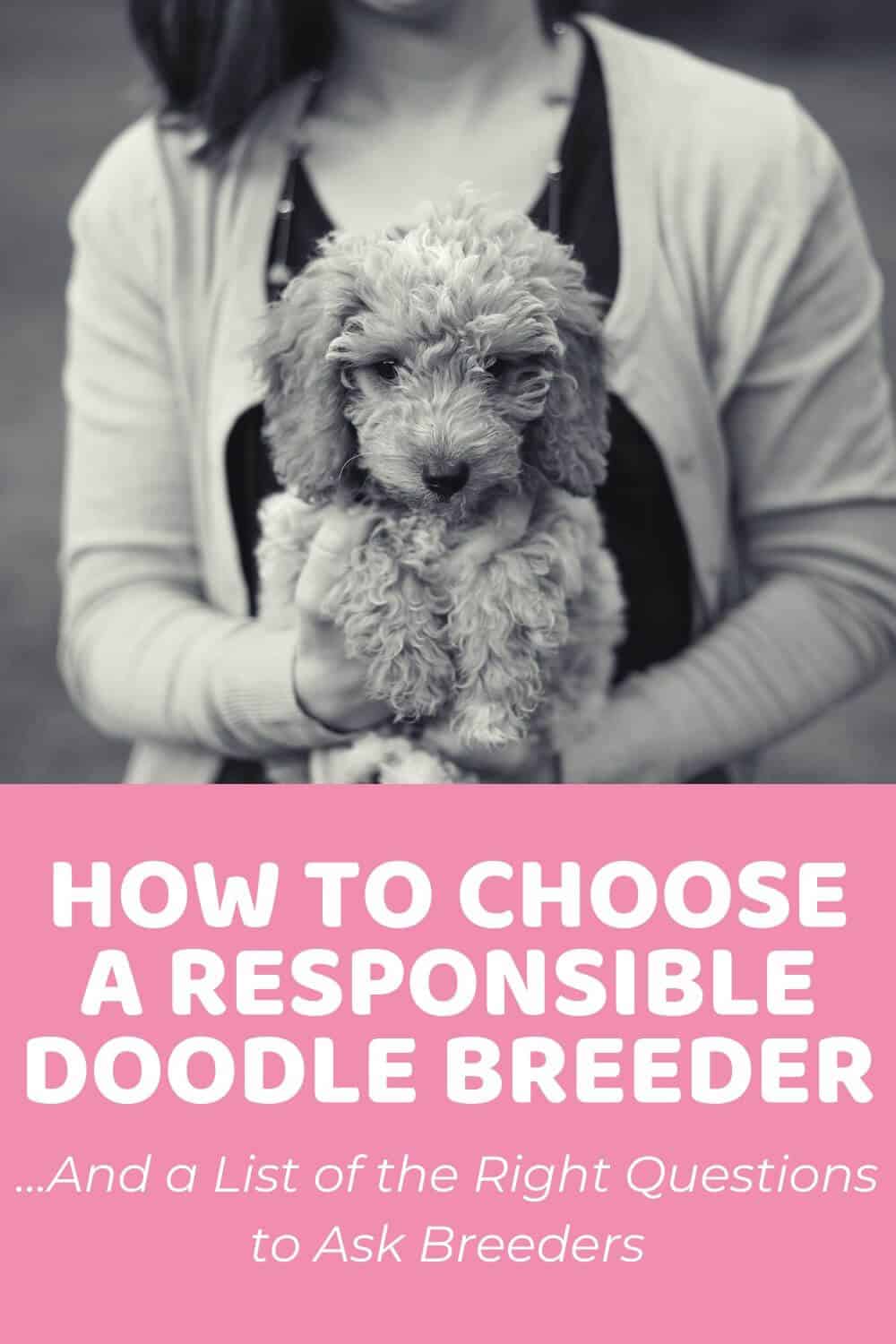





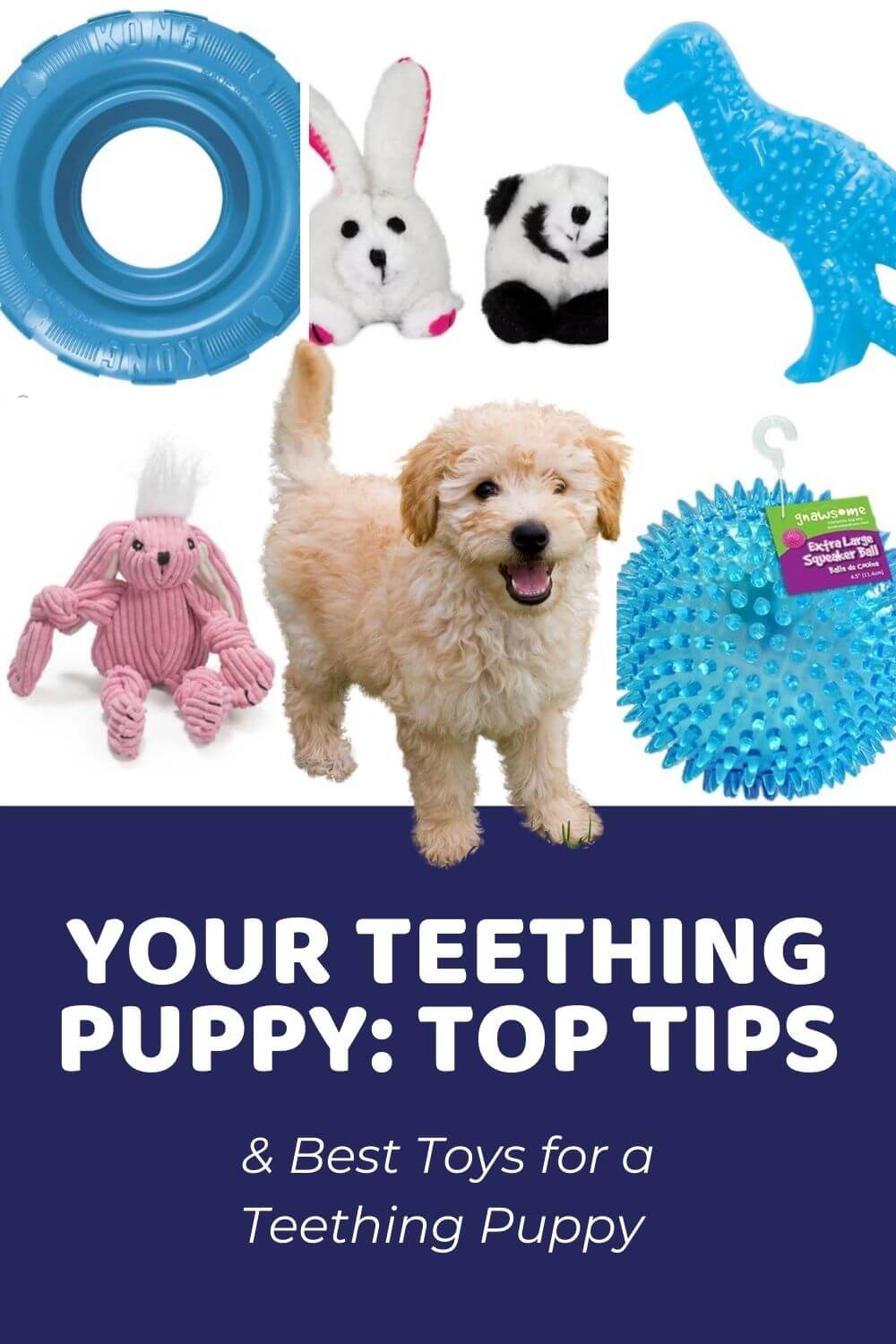

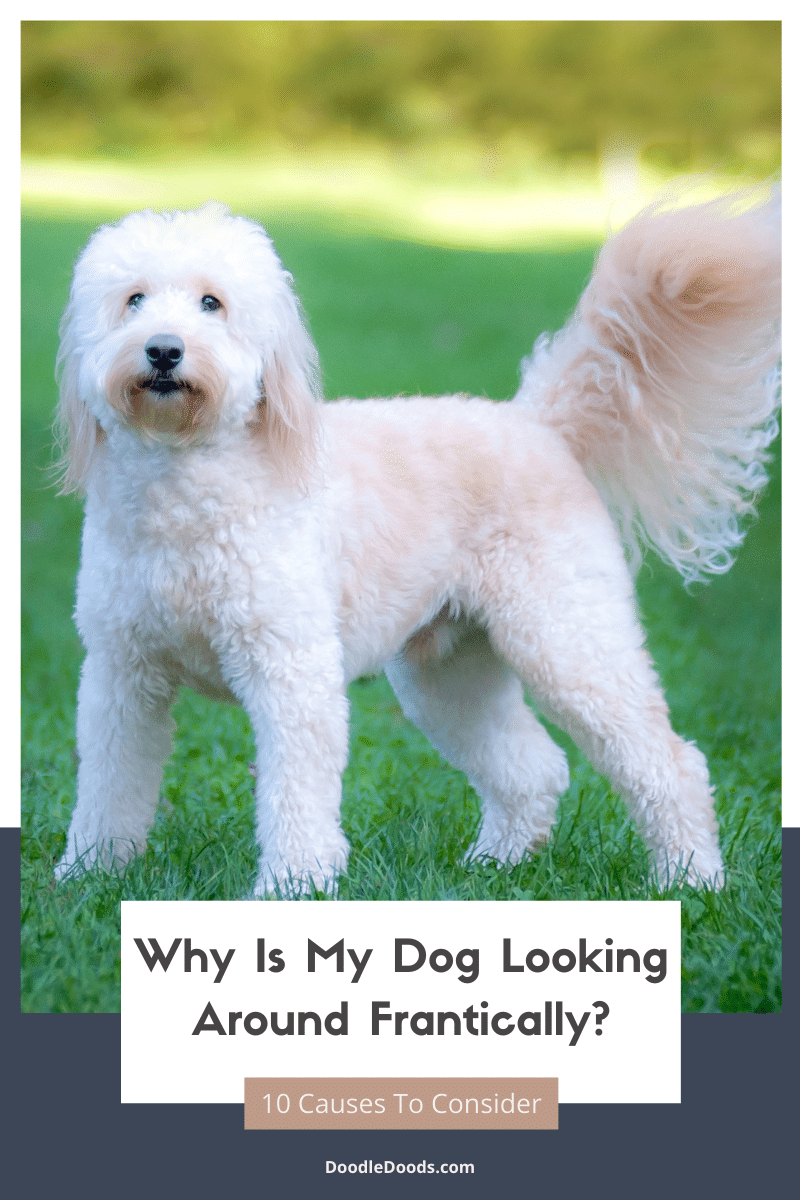
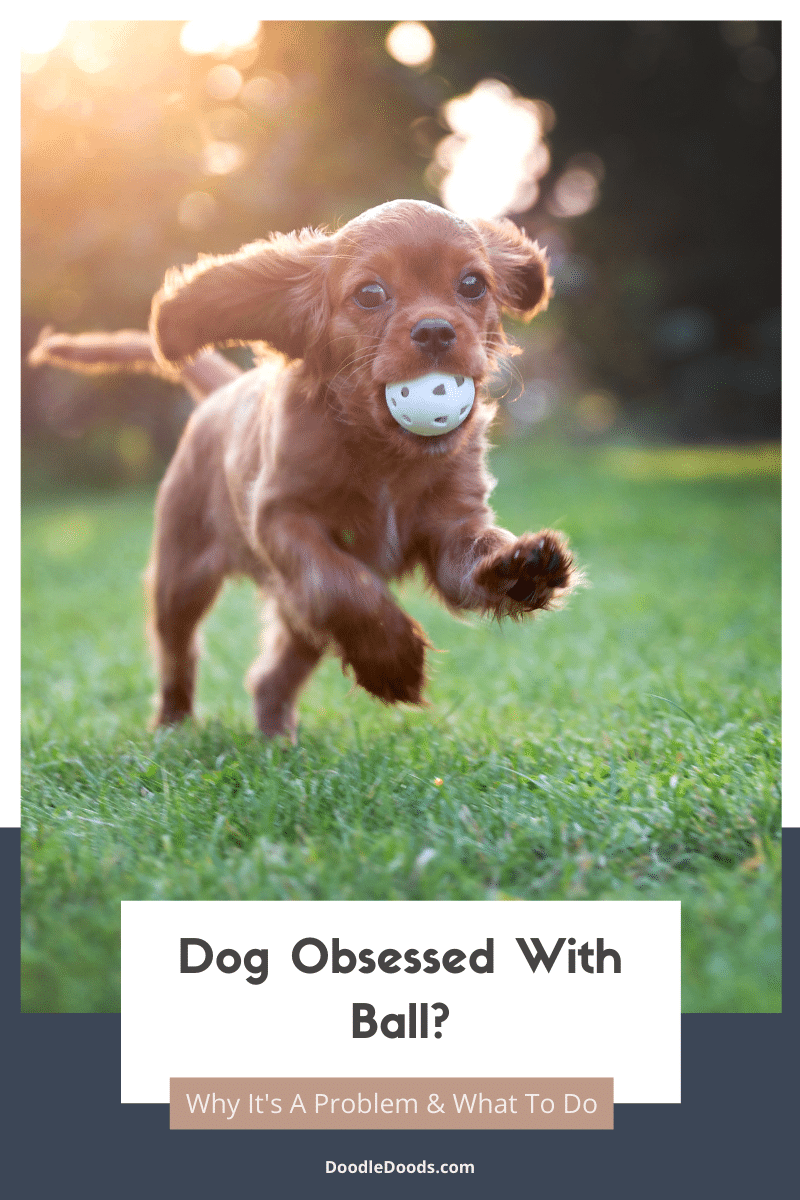



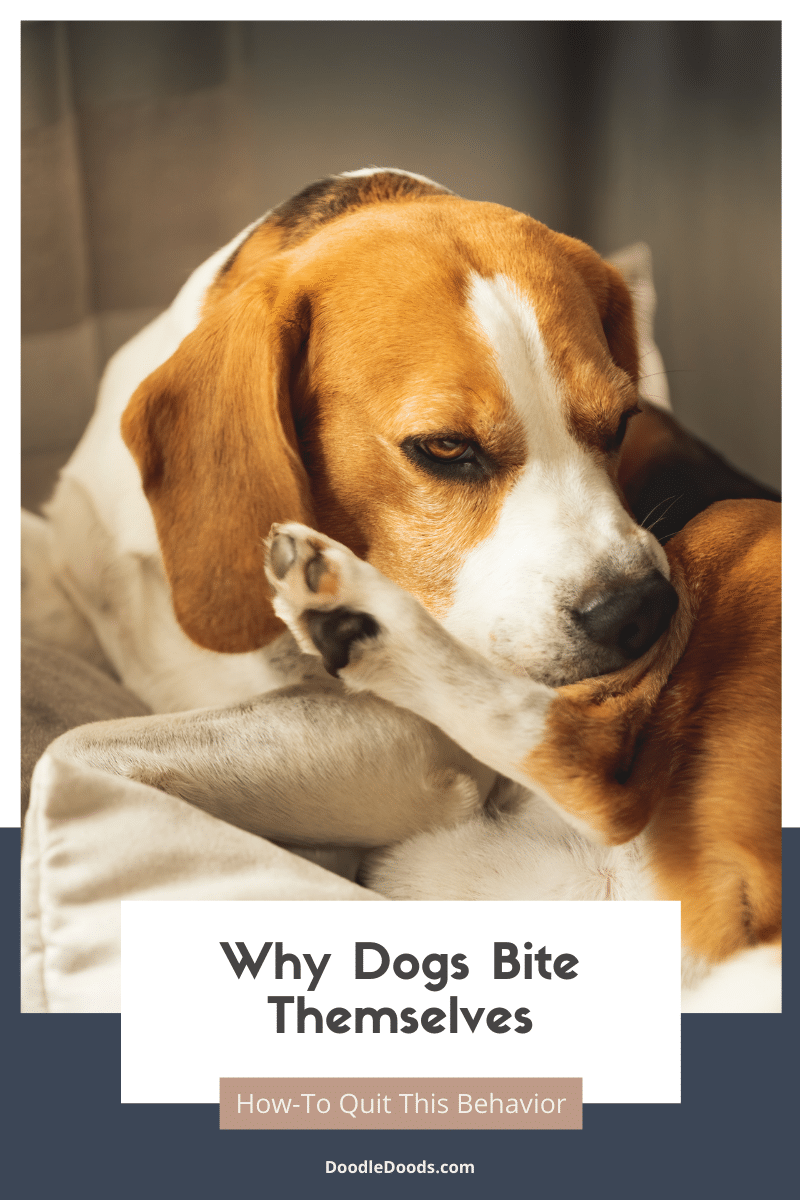

How great that Goldendoodle have been bred for their companion qualities. I want to have a companion dog as an emotional support animal this month. I will find a reputable place to buy Goldendoodle puppies close by.
August 29, 2022 at 3:57 pm